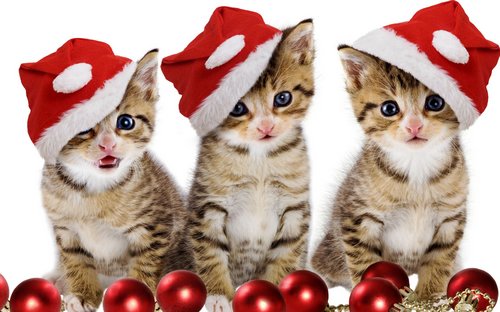Ham, turkey, gravy, oh my! We know holiday treats can be tempting, and, it’s tempting as well to share those deights with our pets; especially with those puppy dog eyes staring up at you! But, you need to know the risks that come along with sharing with your furry friends. Many foods can be harmful and even toxic to our pets and it is important to know which foods to avoid and prevent any unwanted vet visits. All chocolate, especially dark, is a well-known toxin to pets, but did you know that coffee and caffeine are as well? Some mild signs to notice after ingesting any of these things are vomiting and diarrhea, as well as increased thirst and urination. But ingesting chocolate or caffeine can also lead to abnormal heart arrhythmias, as well as increased heart rate, tremors, and even seizures or death. Xylitol is an artificial sweetener used in many ingredients like peanut butter, candies, mints, and sugar-free gum. Xylitol is very toxic to pets and requires immediate veterinary care. Even small amounts can cause severe hypoglycemia and liver failure. Initially you may notice lethargy, vomiting, diarrhea, or unsteady movement. But sometimes you may not notice anything for a few days and by that point the liver could be severely damaged. Always check ingredients before sharing!

Some other foods to think about are onions, garlic, and chives. Ingesting these ingredients can cause gastrointestinal upset including vomiting, diarrhea, and inappetence. It can also cause red blood cell destruction which results in your pet becoming anemic. Did you know that grapes and raisins are toxic to our pets? It is unknown exactly what part of the grape is toxic, but it only takes a couple of grapes to cause kidney failure.
There are plenty of foods that are not toxic to our pets but can still cause our pets to become sick. If you notice your pet experiencing some gastrointestinal upset like vomiting, diarrhea, or inappetence, it could potentially lead to pancreatitis. Pancreatitis is inflammation of the pancreas, which is the organ responsible for digestive enzymes and insulin production. When a pet develops pancreatitis there are some key tips for treating, including a low-fat diet that is easily digested and medications to help with nausea, vomiting, and sometimes abdominal pain. In more severe cases, pets require intravenous fluid therapy to correct dehydration and electrolyte imbalances. In these instances, pets can be hospitalized for 24-36 hours or longer receiving intravenous medications and pain management as well. What causes pancreatitis? This is typically a result of feeding high-fat foods, like table scraps, or introducing new foods abruptly. But pancreatitis can also develop secondary to any gastrointestinal upset or disease.
We will be closed Christmas Eve as well as Christmas Day, but if you have any concerns about your furry friends during the holidays give us a call and we will be happy to help!
30A Vet is located at 36 Spires Lane (Gulf Place) Unit 14 in Santa Rosa Beach. call 850-660-1892.
The post Holiday Tips From 30A Vet; What Treats to Avoid Giving your Pet this Christmas appeared first on South Walton Life | 30A News, Events and Community Information.

Be the first to comment on "Holiday Tips From 30A Vet; What Treats to Avoid Giving your Pet this Christmas"